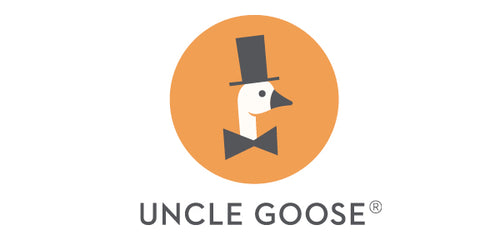
No Manual Required! Trust the Blocks, Trust the Process
A befuddled dad once confessed that while Uncle Goose blocks looked cool, he was clueless about their play possibilities and educational value. Questions swirled:
- How do you play with ABC blocks?
- What makes them educational?
- What, exactly, are you supposed to do with them?
- Why no instruction manual?
Our response? No manuals required! Trust the blocks. Trust the process. Relax and let go.
With Uncle Goose ABC blocks, you don't need to have all the answers. You don't need to orchestrate a lesson or provide explanations at every turn. Blocks relieve you of the responsibility of knowing exactly what to do at any given moment.
Just place the blocks down—simple as that. Your child will instinctively know what to do with them. Let them show you what they can do!
They'll see the colors and the animal illustrations. Children like those features. And since the blocks are the right size for little hands to grab, they'll do just that!
For children, playing begins immediately and spontaneously. And when it does, learning can happen without much — or any! — adult supervision. Here are six common ABC block play scenarios:
1. Building Heights. A child constructs a tower, testing its limits. This simple act teaches balance, stability, gravity, and maybe even counting.

2. Creative Patterns. Another child might arrange the blocks in different shapes and patterns on the floor or table. Those are exercises in geometry, symmetry, and creativity.

3. Alphabet Adventures. Adults can join in the fun by spelling words and reading them aloud. This helps children learn about letters, sounds, and vocabulary.

4. Sorting Fun. You also might help a child sort the blocks by color or letters. You'll learn about categories, comparisons, and sorting as you do.

5. Storytelling Time. Almost every child uses the blocks as props for storytelling. That's how they learn about characters, plots, and imagination. (And wouldn't you know it? Adults use ABC blocks as props for storytelling, too. That's why you see so many stock images of business people using blocks to illustrate abstract concepts!)

6. Social Play. As children play together, they share newfound knowledge, invent games, and explain rules. They develop critical social skills like keeping score, communication, leadership, and taking turns.

If you're worried your children won't know how to play with blocks, relax! They've got this! They know what to do!
It's your chance to sit back, relax, and witness their innate brilliance. Enjoy watching your children play for a while. You might find yourself eager to join the fun!
